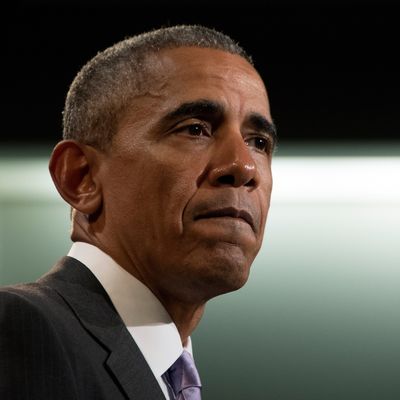
Being in power does, in a very real sense, go to people’s heads. Psychologists have found that when people are made to feel powerful, they believe more in the things they’re thinking. This leads to a bunch of wacky, seemingly contradictory behaviors, as Ohio State Ph.D. candidate Geoff Durso explained to Science of Us in an email: Feeling more powerful may make you kinder and more assertive, yet also more dishonest.
This is explained by the “self-validation theory of judgment,” he says, which basically means that when you feel powerful, your thoughts get magnified. They feel more right compared to if you felt powerless. “So, when placed in a situation where one is primed to think aggressively (e.g., a competition), greater feelings of power should translate into more aggressive, competitive behavior (thus seeming to lend credibility to the idea that ‘power corrupts’),” Durso explained. “But when placed in a situation where someone has the goal to act generously (e.g., when considering a charitable donation), the self-validation perspective predicts that greater feelings of power should now translate into more helpful, prosocial behavior.”
And this is where things get even weirder: If powerful people don’t know what to do, they really don’t know what to do.
For a study published this month in Psychological Science, Durso and his colleagues recruited 129 and 197 college students for two separate experiments. Participants were given different descriptions of an employee named Bob, some with all positive attributes (like that Bob beat his earnings goals), some with all negative (e.g., Bob stole his colleague’s mug from the kitchen), and some with an even split. Then, the participants were given a writing task where they had to recall an experience in their lives that made them feel powerful or powerless, framing their decision. They were also asked how conflicted they felt about Bob’s future, and in one study, they were asked to decide whether to fire or promote Bob with the click of a mouse. Of the participants who were given ambivalent information about his behavior, the powerful took 16 percent longer to make a decision than the less powerful. Just as power made people kinder or more dishonest when they were primed for it in the other experiments, it also made them think longer about conflicting information.
It’s a finding that is easy to spot corollaries for out in the wild. Barack Obama, who largely makes good decisions, has spoken about the burden of power and conflicting information. In an interview with U.S. News in 2009, Obama said that one of the difficulties of his job was that if a problem were to have a clear solution, it wouldn’t land on his desk; the buck wouldn’t stop there. When asked about difficult economic decisions, he said that there’s always going to be probabilities involved. “You’re never 100 percent certain that the course of action you’re choosing is going to work,” he said. “What you can have confidence in is that the probability of it working is higher than the other options available to you. But that still leaves some uncertainty, which I think can be stressful, and that’s part of the reason why it’s so important to be willing to constantly re-evaluate decisions based on new information.”
Same with George W. Bush, as the research team notes in their press release: Though he described himself as “the decider,” the president said that he would not be rushed into making a decision about whether to add or withdraw forces from Iraq, and was, despite his decider-ness, given to delays. It’s all evidence that the more powerful you feel, the higher the stakes are — even in your head.




